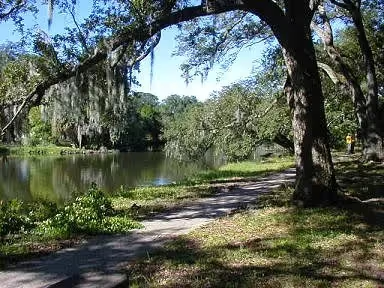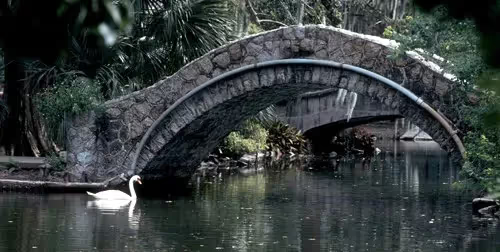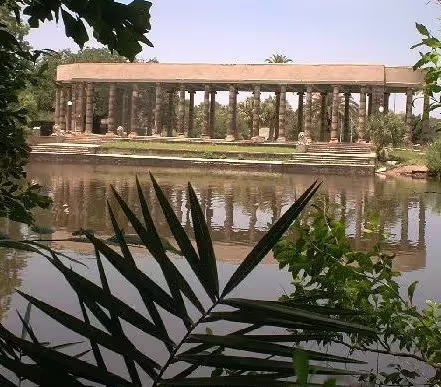A biweekly newsletter with public space news, resources, and opportunities.
A curated dispatch on all things public markets plus the latest announcements from the Market Cities Program.
Please note that these Hall of Shame nominations were written in a moment in time (most over a decade ago) and likely have since changed or even been transformed. If the above entry is now great, or still not so great, go ahead and comment below on how it has evolved or nominate it as a great place.

A large city park with activities ranging from weddings to paddle boats to an art museum.

Text from the City Park Web Page: "Once the site of Allard Plantation facing Bayou St. John, City ParkÍs 1,500 acres offer visitors a sample of the cityÍs riches both in fine art and natural splendor. Home of the New Orleans Museum of Art and the largest collection of mature live oaks in the world, City Park whispers stories of duels at dawn and Creole romance beneath the surface of todayÍs Mecca of childrenÍs entertainment and leisure opportunities. Spanning the transition in art and architecture between Neo-Classical revival, Art Deco and Modern styles, the parkÍs bridges, buildings and outdoor sculptures are a constant source of delight to visitors. City Park occupies an expansive area in Mid-City that was once a swampy, oak-filled forest, home to Accolapissa and Biloxi Indians who traded by dugout canoes along the banks of Bayou St. John. Recognizing the valuable waterway of the bayou from Lake Pontchartrain (just north of the park), explorer Jean Baptist-LeMoyne, sieur de Bienville, was finally able to establish the location of the city of New Orleans for the crown of France. The land which City Park occupies today is especially romantic for its long favor with Creole gentlemen as a place to conduct their "affaires dÍhonneur" _ dueling, in fact, was not outlawed in the park until 1890 _ 36 years after the land left to the city by philanthropist John McDonogh was declared a public park. No history of City Park is complete without mention of the enormous efforts of the Roosevelt Administration in City Park during the Great Depression. More than $12 million federal dollars were spent and more than 20,000 men and women were employed through the Works Progress Administration building bridges, roadways, fountains, a garden and stadium and digging over 10 miles of lagoons _ work all done by hand. For more information on City Park call (504) 482-4888 to purchase Historic City Park New Orleans by Sally K. Evans Reeves and William D. Reeves."
The park is accessible by foot, public transportation, streetcar, taxi, car, and horse drawn carriage.
City Park is heavily used by families during the weekends, so the clean up is a large task that sometimes may take a day or two.
There is a large range of activities during the spring and summer, including lots of weddings. There is an art museum, paddle boats, picnic areas, a childrenÍs center, swings, gardens, and sculpture.
Mostly locals use the park, but visitors and tourists are finding the place since the trolley line is coming.


*Please note that these Hall of Shame nominations were written in a moment in time (most over a decade ago) and likely have since changed or even been transformed. If the above entry is now great, or still not so great, go ahead and comment below on how it has evolved or nominate it as a great place.